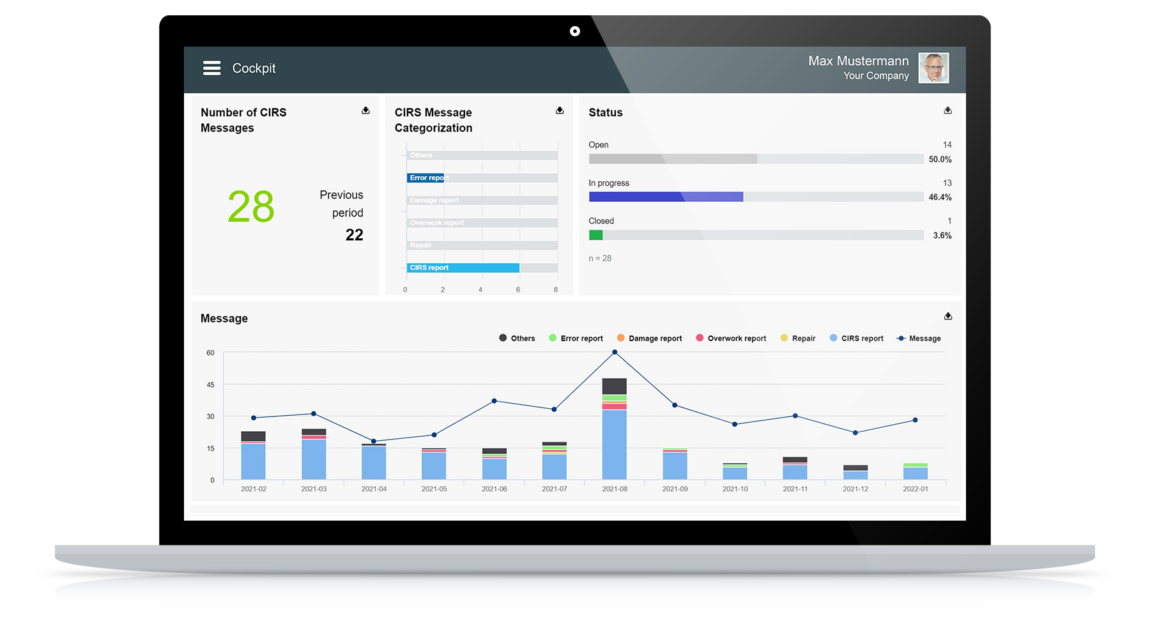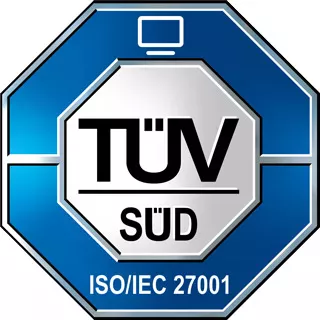The quality of hospitals and healthcare is more important than proximity to home: According to a study conducted by the German health insurance company Techniker Krankenkasse in January 2022, 92% of Saarland residents said that the quality of a hospital is more important to them than proximity to home. Patients are willing to travel longer distances, especially for special procedures performed in a specialized clinic (source: tk.de). These findings are in line with another survey conducted the previous year in the German state of Thuringia, which found that the quality of treatment is the most important factor for patients when choosing a hospital – far more important than proximity to their home (source: tk.de). These and other studies clearly show that high-quality hospital care is highly valued by patients. What are the consequences for quality management in healthcare?
Healthcare Quality More Important than Ever

High quality in hospitals is the key to economic stability for clinics and an efficient healthcare system. In addition to the emotional importance for patients, transparent quality reports have been required by law since 2005. Detailed reports allow hospitals to compare themselves with other facilities while providing relevant information to patients. The reports include factors such as the range and quality of treatments, hygiene and staffing levels.
The focus on quality assurance in healthcare has also been strengthened by the Hospital Structure Act of 2016. The law focuses on stricter controls if hospitals do not meet the required quality of care and services. Under certain circumstances, this can be decisive for the survival of a hospital, making it all the more important to comply with quality standards. In addition, the Health Care Development Act for Quality Assurance and Management also aims to strengthen the sector and address current challenges such as the shortage of skilled workers. Adequate quality in healthcare is therefore no longer just a “nice to have” for a good image, but a real obligation. But how can it be systematically assessed and developed to meet regulatory requirements and patient demands?
How Do You Measure and Improve Healthcare Quality?
Because the quality of healthcare depends on many different factors, it is difficult to define universal starting points for overall improvement. However, it is clear that there is still a lot of untapped potential in one specific area: the digitization of healthcare. Despite strong demand from both staff and patients, digital solutions for quality management in clinics have been slow to be implemented. However, it only takes a few steps to implement a digitalization strategy that can be continuously developed and improved.
Smooth the Path to Digital Transformation with Omnichannel Satisfaction Surveys

Patient, referring physician, and staff surveys can be conveniently conducted and analyzed digitally. At the touch of a button, hospital managers can gain direct insight into their hospital’s daily operations and quality. Multichannel surveys are a suitable tool for general inquiries about the patient’s stay and treatment, or for obtaining targeted feedback on specific topics. The digitally analyzed results provide hospital managers with detailed observations on the quality of care and enable them to identify and implement targeted improvement measures.
Smart Quality Assurance Through Digital Audit Management and CIRS Early Warning Systems
Regular quality audits are an important tool for verifying compliance with existing standards and identifying weaknesses in daily operations. Digital solutions support this process by making the entire audit process more efficient – from designing the questionnaire to following up on findings after an audit. In addition, critical incident reporting systems (CIRS) help ensure patient safety and healthcare quality. Delivered digitally, they can be used to quickly identify and eliminate critical events and errors in patient care based on information provided by staff. These systems make a valuable contribution to a continuous learning process, helping to prevent future errors and improve the quality of healthcare.

Multiple Digital Solutions All in One Platform
Powerful technology can unify these simple digital solutions into a single platform. Quality managers can obtain detailed information on a wide range of issues. Within seconds, long-term trends can be identified or comparisons made between sites. This enables highly efficient quality management in hospitals, allowing targeted optimization measures to be derived and their effectiveness to be systematically tracked. The increased flexibility of such a central platform also allows for the continuous addition of new solutions, which can be used to successively expand one’s own digitalization strategy.
Targeted Healthcare Quality Management for High-Quality Patient Care
Patients rank quality above all other factors when choosing a hospital, including proximity to home. In addition, a shortage of skilled workers, the risk of insolvency, and regulatory requirements are increasing the pressure on hospitals to manage quality. Quality in healthcare is made up of many different factors, making it quite complex. However, there is untapped potential in the area of digitalization. Digital solutions help to establish active methods to improve the quality of hospital services and to monitor their effectiveness.

Surveys, early incident warning systems, and regular quality audits provide an easy starting point for digital transformation. They can be used to efficiently measure, evaluate and continuously improve the quality of healthcare. The intelligent interaction of these solutions supports quality managers in quickly identifying potential for improvement and deriving targeted measures.
With Spectos Healthcare solutions for audit management, satisfaction surveys and CIRS, you can identify problematic events in your hospital at an early stage and take direct improvement measures. Receive your evaluations centrally at any time in the Spectos Real-Time Performance Management™ platform. Optimize the quality of healthcare in your facility and the satisfaction of your patients and employees with our digital solutions.
Improve Your Healthcare Quality Now!
Case studies, new projects and healthcare industry news – it’s all on our LinkedIn Healthcare focus page!








